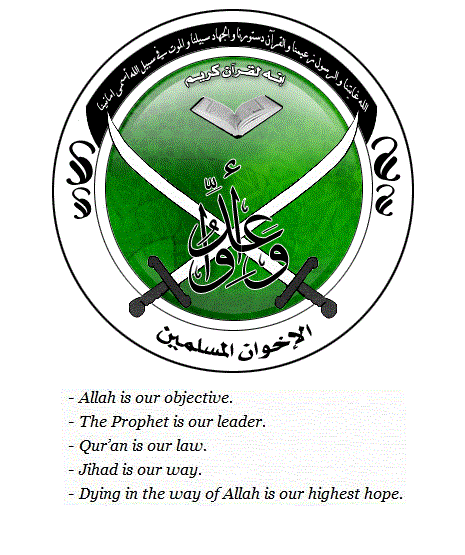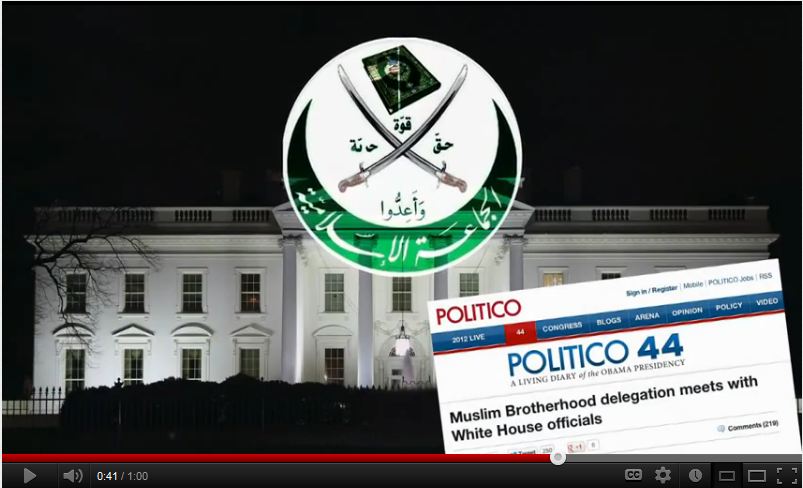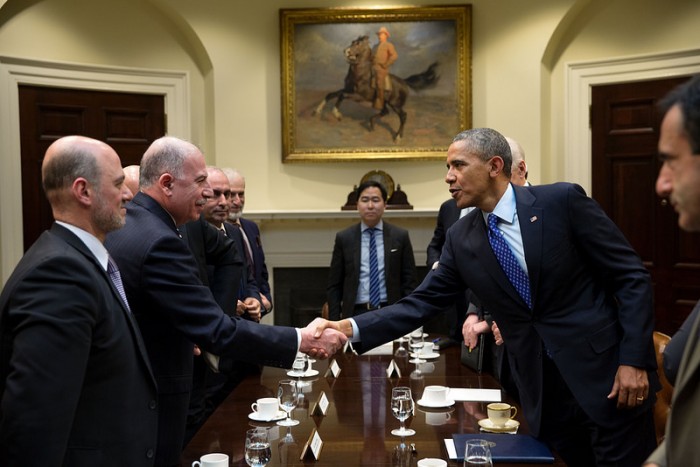President Trump Recognizes Certain Muslim Brotherhood Chapters for Potential Foreign Terrorist Designation
Many of us who have watched U.S.-Mideast policy unfold for decades, accepted there was just no way for the U.S. government to designate the Muslim Brotherhood as a foreign terrorist group.
As noted historically in Kuwait, Jordan, Libya, Egypt, Syria, Turkey and most recently Qatar, the U.S. government works collaboratively with chapters of the Muslim Brotherhood.
The Muslim Brotherhood is the political arm of authentic Islam, and can be considered much like the umbrella organization for a host of different factions of Islamic fundamentalism.
The Brotherhood is the unified political voice of many regional chapters, each with a varying degree of authentic Islam behind it.
Qatar is the central bank for the Muslim Brotherhood; Turkey represents the Brotherhood’s biggest national support network, and Egypt is the intellectual or scholastic battleground where the values of political Islam are debated.
For many years several people, ourselves included, have called for the Muslim Brotherhood to be designated as a foreign terrorist organization. However, the duality of purpose of the Brotherhood was always given as a reason not to designate them.
Today, President Trump is trying to navigate this dynamic within his executive order [SEE HERE].
The executive order instructs the State Dept to officially begin the process to look at each chapter of the Muslim Brotherhood as a separate entity, and then see if the designation of a terrorist organization can apply to that chapter.
As noted in the Executive Order, “relevant here, its chapters in Lebanon, Jordan, and Egypt engage in or facilitate and support violence and destabilization campaigns.” It looks like Lebanon, Jordan and Egypt chapters of the Brotherhood will get the first review.
Egyptian President Abdel Fattah al-Sisi already dealt with the extremist Muslim Brotherhood once, kicking their leadership out of Egypt. The leaders fled to Qatar, and then ultimately ended up in Turkey, where Recep Erdogan absolutely loves the usefulness of the Brotherhood.
Jordanian King Abdullah has been balancing the Muslim Brotherhood influence for years, and Lebanon is a hot mess with the Hezbollah faction of the Brotherhood. The Muslim Brotherhood, as a political structure, holds all kinds of extremist factions under its umbrella (al-Qaeda, al-Nusra etc.).
This effort to designate the “chapters” also looks like an appeasement toward the position of Israel, who has long called for the terrorist designation. The nations of Lebanon, Jordan and Egypt were key stabilizing voices during the Israel-Hamas conflict over Gaza.
WHITE HOUSE – […] Section 1. Purpose. This order sets in motion a process by which certain chapters or other subdivisions of the Muslim Brotherhood shall be considered for designation as Foreign Terrorist Organizations, consistent with section 219 of the INA (8 U.S.C. 1189) and specially designated global terrorists, consistent with IEEPA (50 U.S.C. 1702), and Executive Order 13224 of September 23, 2001 (Blocking Property and Prohibiting Transactions with Persons Who Commit, Threaten to Commit, or Support Terrorism), as amended.
The Muslim Brotherhood, founded in Egypt in 1928, has developed into a transnational network with chapters across the Middle East and beyond. Relevant here, its chapters in Lebanon, Jordan, and Egypt engage in or facilitate and support violence and destabilization campaigns that harm their own regions, United States citizens, and United States interests. For example, in the aftermath of the October 7, 2023, attack in Israel, the military wing of the Lebanese chapter of the Muslim Brotherhood joined Hamas, Hezbollah, and Palestinian factions to launch multiple rocket attacks against both civilian and military targets within Israel. A senior leader of the Egyptian chapter of the Muslim Brotherhood, on October 7, 2023, called for violent attacks against United States partners and interests, and Jordanian Muslim Brotherhood leaders have long provided material support to the militant wing of Hamas. Such activities threaten the security of American civilians in the Levant and other parts of the Middle East, as well as the safety and stability of our regional partners.
Sec. 2. Policy. It is the policy of the United States to cooperate with its regional partners to eliminate the capabilities and operations of Muslim Brotherhood chapters designated as foreign terrorist organizations pursuant to section 3 of this order, deprive those chapters of resources, and thereby end any threat such chapters pose to United States nationals or the national security of the United States.
Sec. 3. Implementation. (a) Within 30 days of the date of this order, the Secretary of State and the Secretary of the Treasury, after consultation with the Attorney General and the Director of National Intelligence, shall submit a joint report to the President, through the Assistant to the President for National Security Affairs, concerning the designation of any Muslim Brotherhood chapters or other subdivisions, including those in Lebanon, Jordan, and Egypt, as foreign terrorist organizations consistent with 8 U.S.C. 1189, and specially designated global terrorists consistent with 50 U.S.C. 1702 and Executive Order 13224.
(b) Within 45 days of submitting the report required by subsection (a) of this section, the Secretary of State or the Secretary of the Treasury, as applicable, shall take all appropriate action consistent with 8 U.S.C. 1189 or 50 U.S.C. 1702 and Executive Order 13224, as applicable, with regard to the designation of any Muslim Brotherhood chapters or other subdivisions described in section 1 of this order as foreign terrorist organizations and specially designated global terrorists. (more)








Post a Comment